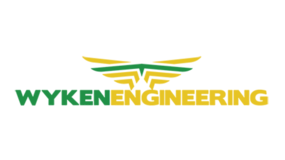Moog has a long history in aerospace with flight and engine controls and components
Moog Aircraft in the UK will lead a ground-breaking collaboration project, assisted by Aerospace Technology Institute (ATI) programme grant funding, to develop key technologies for future liquid hydrogen gas turbine fuel systems. The project targets large commercial aircraft of the future and has the technical support of a major engine manufacturer, GE Aerospace.
The collaboration comprises: the University of Bath/IAAPS, Cranfield University, Baker Hughes Druck (MAA members), Curtiss-Wright Corporation (MAA members), and Carter Manufacturing (MAA members). The group will develop and demonstrate a fuel control system for aircraft hydrogen gas turbines together with non-fueldraulic electromechanical actuation systems for variable engine geometries.
Moog has a long history in aerospace with flight and engine controls and components on many large commercial aircraft, including Boeing 787, Airbus A350, and Embraer E2. The Moog project team and product development will be based at our state-of-the-art new facility in Tewkesbury, United Kingdom.
The University of Bath will support the project with its research expertise in designing, simulating, and testing fluid systems and fluid control components. Hydrogen control technology will be tested at a unique facility to be built and operated by the University’s commercial subsidiary IAAPS Ltd, a new cross-industry, £70m advanced propulsion research and innovation center located at the Bristol & Bath Science Park.
The history of gas turbine performance engineering at Cranfield University dates back to 1946 when its forerunner, the College of Aeronautics, was created at the RAF station in Cranfield, Bedfordshire. Cranfield is synonymous with aerospace, and its applied hydrogen research covers all aspects of the generation and use of fuel at airports and in aircraft. The University also is the project coordinator of the EU H2020 ENABLEH2 project. Cranfield University will support this project with its expertise in the modelling, performance assessment, and dynamic behaviour of the hydrogen fuel system.
The FETCH project is supported by the ATI Programme, a joint Government and industry investment to maintain and grow the UK’s competitive position in civil aerospace design and manufacture. The programme, delivered through a partnership between the Aerospace Technology Institute (ATI), Department for Business and Trade, and Innovate UK, addresses technology, capability, and supply chain challenges.
"We are delighted to have pulled together such a strong group of companies to collaborate with on this important sustainable aviation initiative,” said Mark Lawton, General Manager, Aircraft Controls Components Division. “Moog has a great history of solving difficult technical challenges and our experience with engine fuel control valves and hydrogen positions us to develop the products required by a new generation of aircraft engines.”
Moog is excited to embark on this innovative and environmentally sustaining initiative. Activities will begin in September 2023 culminating in hydrogen fuel system testing in early 2026.






